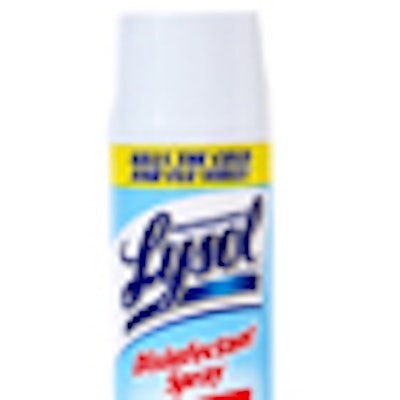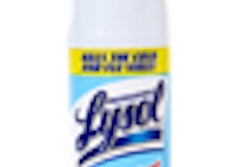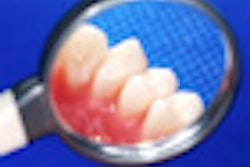
A study published in the May issue of the Journal of the American Dental Association (JADA) is being retracted in the September issue after the editors learned that certain critical information about the study was not disclosed prior to publication.
The study (May 2012, Vol. 143:5, pp. 472-477), conducted by Charles John Palenik, PhD, measured the long-term effect of six spray disinfectants on nine common types of dental office surfaces.
Palenik was the director of infection control research and services for the department of oral biology at the Indiana University School of Dentistry when the study was conducted. At the time of publication, he was the director of scientific affairs and research for the Organization for Safety, Asepsis and Prevention (OSAP).
However, Palenik was not employed by OSAP when he conducted this study, according to a notice of retraction in the September JADA.
The study was supported by funding from Biotrol, a company that also manufactures two of the tested products -- Birex and Opti-Cide3. A disclosure on page 477 of the May JADA noted that Biotrol provided funding for the study, including travel to meetings and author compensation. Biotrol also provided the Birex and Opti-Cide3 products used in the study.
Extra product added
For the study, Palenik measured the effect of disinfectants on smooth vinyl, textured vinyl, brushed aluminum, smooth stainless steel, laminated heat-resistant thermosetting plastic, service line rubber hosing, high-impact plastic, acrylic resin sheets, and enameled metal.
He tested six disinfectants in all: Birex SE Concentrate (Biotrol), CaviCide spray (Metrex), regular bleach diluted 1:10 with tap water, DisCide Ultra disinfecting spray, (Palmero Health Care), Lysol Brand II IC disinfectant spray (Reckitt Benckiser), and Opti-Cide3 (Biotrol).
Palenik reported that Birex SE had consistently better blood removal scores across time. DisCide Ultra disinfecting spray had the poorest blood removal results, he noted, while CaviCide and Opti-Cide3 had similar blood removal scores.
He also conducted tests to compare initial cleaning scores with those obtained after 1,920 disinfection procedures and reported that the use of Opti-Cide3 resulted in the fewest significant differences, followed by Birex SE.
However, one of the concerns regarding the study is that, subsequent to publication, Palenik informed JADA that he reopened the study after he had concluded the initial data collection to test another product owned by Biotrol (Opti-Cide3). This poster, obtained from Biotrol, shows the study results but does not include Opti-Cide3.
Opti-Cide3 was not included in the original experimental design and was added about 10 weeks after testing for the other disinfectants had been completed, according to an article by Medscape.
"The addition of the data for the separately tested product, according to two independent statistical consultants, has flawed the study's statistical methodology," the JADA retraction noted.
'A mistake on my part'
In June, Palenik told Medscape that the modification should have been described.
"This was a mistake on my part," he stated in the Medscape article. "We modified the protocol, but protocols are modified all the time. In this case, we just had the same procedures and surfaces when we resumed testing. It was as similar as humanly possible."
Medscape reported that JADA had contracted an independent statistician/epidemiologist for a review who identified 11 methodological problems and nine concerns about the study's analytical approach.
In the same article, JADA Editor Michael Glick, DMD, said that the journal would publish an erratum and explanatory articles, and was planning to expand its author disclosure requirements for peer-reviewed research in response to issues concerning the study.
According to the JADA retraction, even though the sponsorship of the study was disclosed to the journal, Palenik did not disclose until after publication that the sponsor of the study owned the data. Palenik did, however, make it clear that no data were changed or affected as a result.
Palenik told Medscape that his dealings with Biotrol were consistent with his experience with an estimated 125 sponsored studies since the 1980s.
The Medscape article noted that Dr. Glick believed the study did not comply with standard research practices. But at the time, Dr. Glick told Medscape that none of the concerns was serious enough to warrant a retraction.
However, JADA now intends to fully retract the study.
"The editor is now reviewing the journal's author disclosure procedures to ensure that the process draws out all information necessary to help prevent future occurrences of this kind," the JADA retraction states.
Palenik did not respond to requests for comment.



















